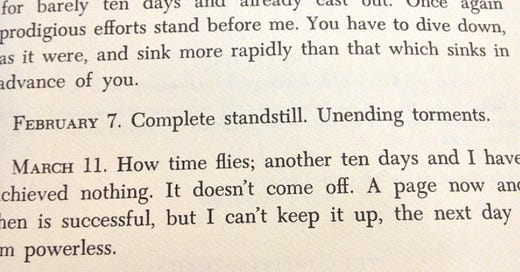How Jenny Tinghui Zhang fell back in love with writing
#12: Featuring how writing about trauma is an act of subversion, how the cry-laugh emoji has become a right-wing emoji, newsletter & YouTube recommendations and more

I expected to have more to report about the upcoming newsletter and blog changes today. However, I’ve been very busy volunteering, preparing to freelance, suffering from a cold and celebrating two good friends getting married, so I don’t have as much to report.
That’s not to say I have nothing to share with you, though. Here are 10 things I thought were worth sharing from the past two weeks:
Jenny Tinghui Zhang wrote an essay about how watching men’s figure skating helped her fall back in love with writing, which resonated with me for many reasons. For one, it reminded me of conversations I’ve had with my friend Ellie about needing to write for fun — enjoying the journey rather than the destination. But it’s also made me aware of how important it is to know why you write.
My friend Jordan wrote for Antagonizine about the UK’s partial conversion therapy ban. I’d recommend giving it a read if you want to learn more about why this ban doesn’t go far enough (and how we ended up here). I’d also encourage you to sign the petition urging the government to ensure any ban includes all forms of conversion therapy.
This thought-provoking interview with Melissa Febos on how writing about trauma is an act of subversion. I might have to invest in Febos’ book Body Work: The Radical Power of Personal Narrative.
I really enjoyed Douglas Greenwood’s interview with Maisie Williams for GQ. There are several noteworthy moments, including her initial hesitance on taking a role with a lot of nudity and what was different about the role that led her to reconsider. What really stood out to me, though, was how Williams grappled with the questions: “What do I really care about? And what do I want to achieve when no one is looking?”
Holly Haworth wrote an essay about men and the inner worlds of men that men are taught to deny. It’s a damn good essay about toxic masculinity and why we men need to become “response-able” for our grief.
Has the cry-laugh emoji (😂) become a right-wing emoji? I listened to the “Live, Love, Cry Laugh” episode of the Ten Thousand Posts podcast earlier this week, whereby hosts Hussein Kesvani and Phoebe Roy invite Huw Lemmy to discuss one of his newsletter pieces: “😂CRY-LAUGH NATION😂: A prehistory of Britain's obsession with banter.” In the piece, Lemmy notes how the cry-laugh emoji has come to symbolise “active uncaring” and offers an analysis of how those on the Right have used the emoji in response to some of the most horrific acts of cruelty, including laughing at asylum seekers drowning in the English Channel.
Whilst I experiment with different ideas for the future of this newsletter, I’ve subscribed to several newsletters that have given me inspiration: the Quartz Daily Brief; Caitlin Dewey’s Links I Would Gchat You If We Were Friends; Ryan Broderick’s Garbage Day; and the Ann Friedman Weekly.
Thanks to volunteering at the Brentwood Theatre, I’ve managed to watch a few films these past couple of weeks. I wasn’t impressed by Ghostbusters: Afterlife, but I discovered Singin’ in the Rain is a classic for good reason. Encanto is also a lovely film with a good soundtrack, emotional story and beautiful animation. I did also go and see Sonic the Hedgehog 2 because my brother insisted. It’s definitely better than the first film and Idris Elba’s voice work for Knuckles made the film mostly enjoyable.
Last year, I took a webinar on Facebook marketing that stressed the importance of “native content” — i.e. content that exists exclusively on the social media site. Facebook will deprioritise any content with links. Unsurprisingly, Twitter is the same, but McKinley Valentine has some tips on how to get around the algorithm and get eyes on your work. In related news: Instagram is pushing reels despite nobody really wanting them.
YouTube recommendations: Aamon Hawk has a new animation featuring his usual blend of horror and shitposting; LEGO Star Wars fans may enjoy Jay Exci’s lengthy retrospective critique of The Complete Saga; and the 1997 series of Berserk was one of the 21 things that got me through 2021, so I loved Super Eyepatch Wolf’s passionate video essay on why you should STILL read Berserk — even though it is unlikely to ever be finished due to the passing of Kentaro Miura.
Thank you so much for reading and for your continued support! If you haven’t yet subscribed, you can do so below. And if you enjoyed reading, I’d love it if you could share it with anyone else who you think would like it, too.
J.W. Stammers


